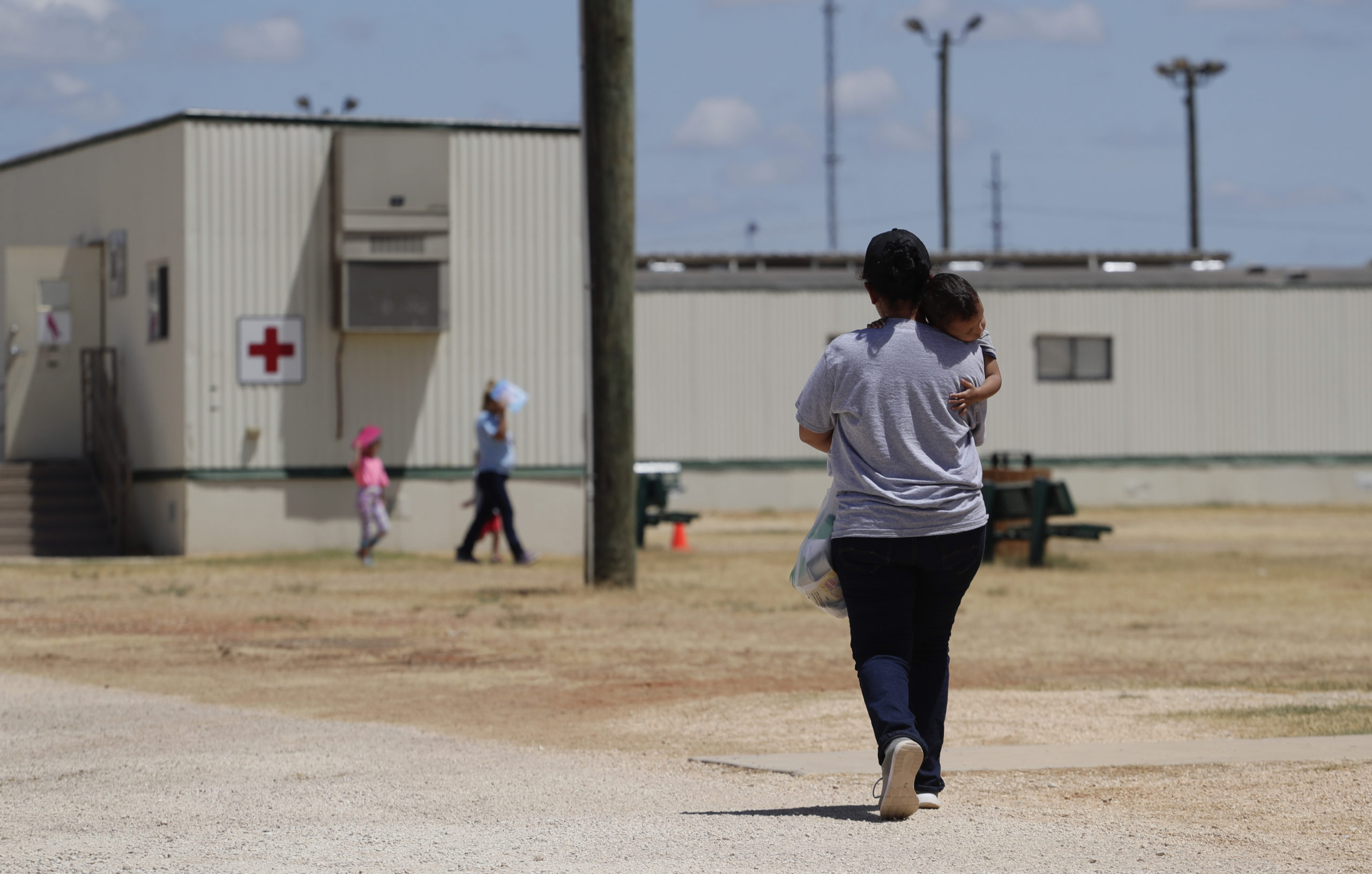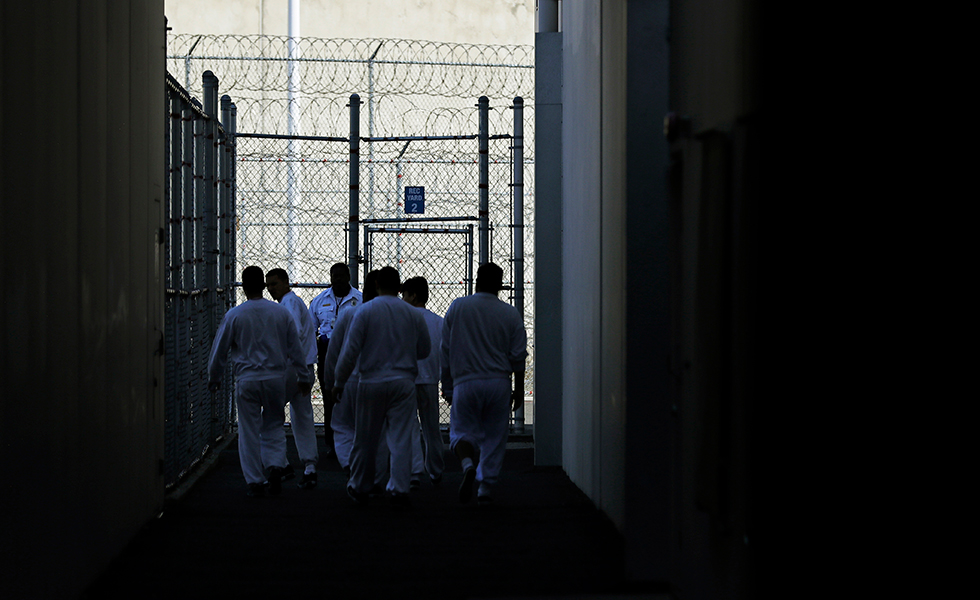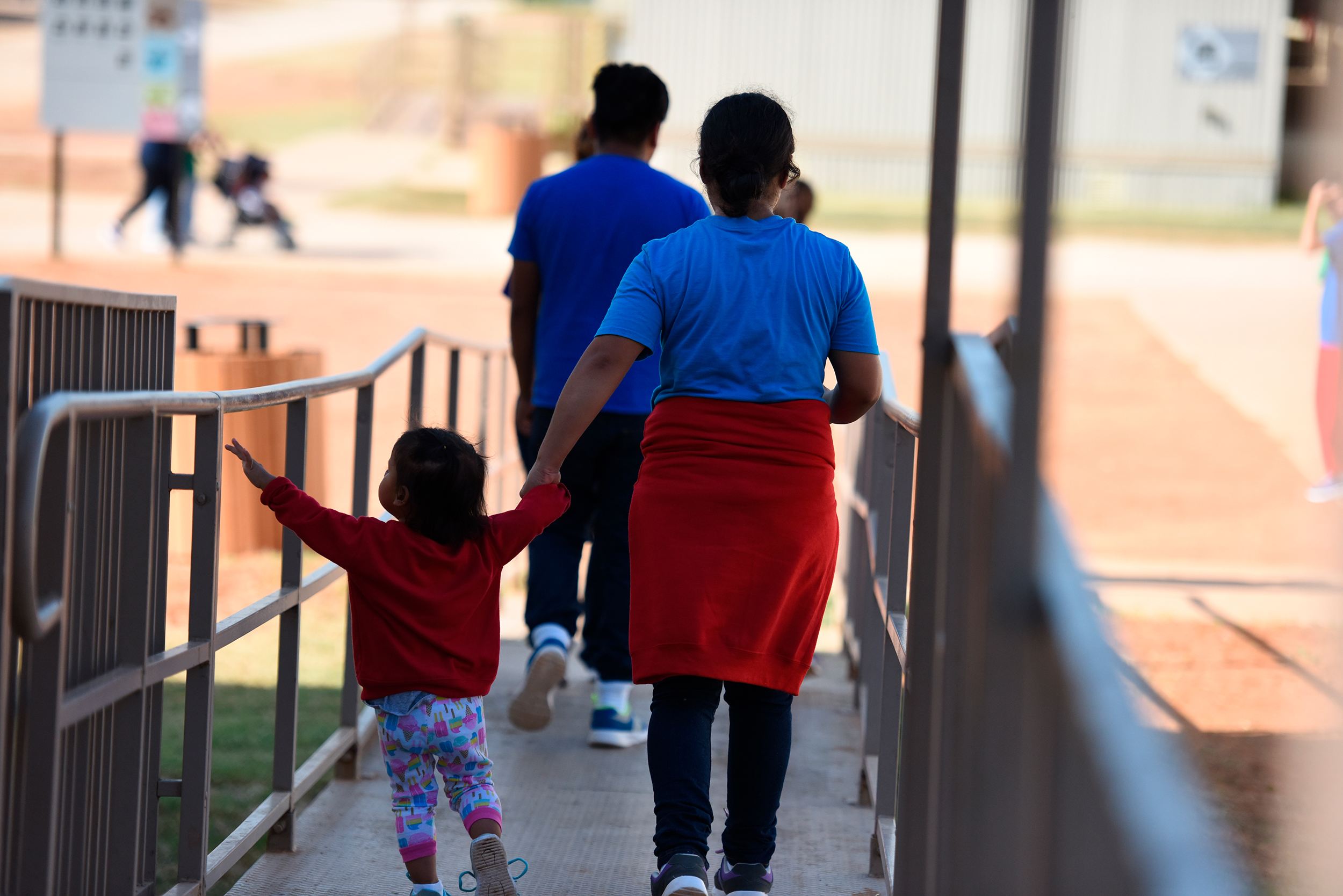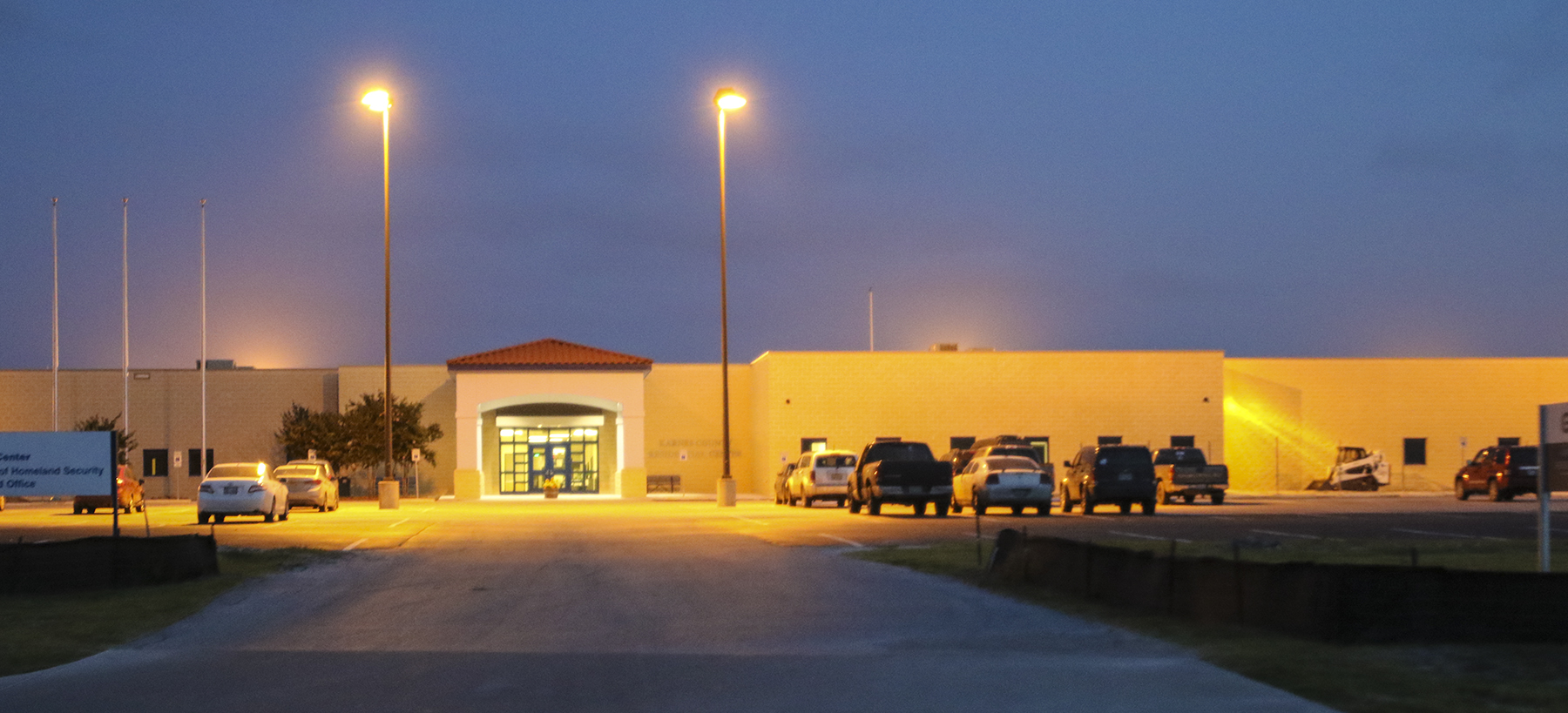
Texas Licenses Detention Center for Child Care, Despite Deficiencies

Texas has granted a temporary residential child care license to a controversial immigrant detention center, despite “deficiencies” uncovered in a recent inspection.
The initial license took effect Friday, April 29, said Department of Family and Protective Services (DFPS) spokesperson Patrick Crimmins.
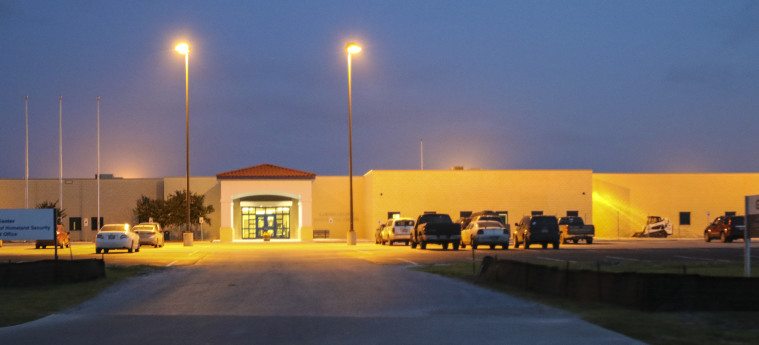
In early March, the GEO Group — the for-profit prison company that operates the Karnes County Residential Center in South Texas — submitted an application to DFPS for the child care license, and in late March, state officials conducted a two-day inspection of the 500-bed facility where Immigration and Customs Enforcement (ICE) detains immigrant women and children, many of whom are fleeing violence and persecution in Central America.
According to the five-page inspection report obtained by the Observer, DFPS identified six “deficiencies” at Karnes. Inspectors discovered that a child was left alone in a bedroom without a parent or adult; an unnamed employee was found to be unqualified for their job; and children’s allergies and chronic medical conditions were not properly documented in their records. Additionally, cleaning carts and supplies were left unattended; the three on-site playgrounds had too little mulch to properly pad the equipment; and the list of rights read to parents and children upon arrival did not include “the child’s rights to be free from being threatened with the loss of placement or shelter as punishment.”
Crimmins said the agency conducted follow-up inspections to ensure “this stuff was fixed” before DFPS issued the license.
For months, immigration and human rights activists have been decrying the state’s efforts to license Texas’ two immigrant family detention centers, citing sexual abuse allegations, poor supervision of children and little to no medical and mental health care.
Last summer, a federal judge ordered the release of migrant children from family detention centers, citing “deplorable conditions” in violation of the 1997 Flores v. Meese agreement, which states that children should not be held in unlicensed facilities. Currently, 1,816 mothers and children are detained between the Karnes facility and the South Texas Residential Center in Dilley, according to an ICE spokesperson.
Besides the two Texas facilities, the Berks Family Residential Center in Pennsylvania is the only other immigrant family detention center in the country. In late January, Pennsylvania revoked its child-care license, and the facility remains open.
“It is deeply disappointing, but not surprising, that the state of Texas has put a rubber stamp on family detention at Karnes,” said Cristina Parker, immigration project coordinator at the nonprofit Grassroots Leadership, in an emailed statement to the Observer. “Today, our state took this step not to protect children, but to protect the federal government from [the federal] order.”
Crimmins said Karnes’ initial license is valid for six months, during which the state will conduct three unannounced inspections before issuing a permanent license. The facility’s license can be revoked at any time should the agency discover “deficiencies with standards, violations of the law, or failure to meet conditions,” according a DFPS letter sent to Karnes officials.
The Corrections Corporation of America (CCA), which operates the facility in Dilley, submitted a license application in March and Crimmins said the facility could receive its initial license as early as this week.
Critics’ concerns over the licensure have only intensified as new reports of systemic failures in Texas’ child welfare system show the repeated, and sometimes fatal, abuse of children in state care.
“Adding two large residential operations to [DFPS’] workload with no increase in staff begs the question of how effectively they can monitor these facilities, respond to complaints and ensure the safety of children,” said Austin anti-detention activist Peggy Morton at an April hearing in Karnes County on the licensure.
Jonathan Ryan, executive director of RAICES, which provides pro bono legal assistance for families imprisoned in the family detention centers, said that Karnes and the 2,500-bed South Texas Residential Center in Dilley should not just be denied child care licenses, but closed entirely.
“Built with taxpayer money for a private prison company, Karnes is not a place where any parent would choose to leave their child alone,” Ryan said in an emailed statement to the Observer. “It is a shame that this center exists and that our government seeks to make it appear to be anything but what it is: a for-profit jail for refugee mothers and children.”
